Vote-counting procedures can tame even wild democracies

The United States needed five long weeks to count all the ballots cast in the recent election. Elsewhere, it happens more quickly; in Switzerland, for instance, many votes are not even counted – they are weighed.
In the end, the American people spoke out resoundingly for change at the White House, with the highest voter turnout in the history of the country. But the recent fiercely contested weeks were a challenge for the oldest modern democracy in the world.
“This year, I was so nervous before the election that I registered as a vote-counter,” says Denise LeGree. The 58-year-old insurance broker from Atlanta is one of about half a million election workersExternal link who together counted more than 30 billion individual votes this year – on average, each US citizen took around 20 electoral or referendum decisionsExternal link. And LeGree and her colleagues had to count the five million ballots cast in her home state of Georgia not just once, but four times. This was after lawyers for the defeated candidates filed repeated complaints under electoral law.
There are other ways of counting. Most countries in the worldExternal link today have regular elections and referendumsExternal link. There are clear principles for “free, fair and democratic” votes and referendums – in the UN International Covenant on Civil and Political RightsExternal link (Art. 25, 1966), for instance, and the European Convention on Human RightsExternal link (Art. 3 Prot, 1952).
What’s more, in many countries the results can be announced a few hours after polling stations close, without raising doubts about the count. Among such dynamic democracies are Malta, Taiwan and Switzerland.
Malta: Military forces at the ready on election day
In Malta, a member of the European Union, the island’s military forces are always on duty for referendums and elections; in Taiwan every single vote is read out loud; and in Switzerland, some ballots are never even counted – they are just weighed with precision devices.
These three countries differ from the US in that they are much smaller, both in terms of population and land mass, but there are also some interesting similarities. As in the US, political events in Malta and Taiwan were for a long time defined by groups prepared to use violence. In Switzerland, the federalist structure of the state is very similar to that of the US.
“Until just a few decades ago, there were violent confrontations here during every election,” recalls Arnold Cassola, who has dual Maltese and Italian citizenship. He has sat in two national parliaments and represented Malta in the EU parliament.
“Today, all the ballots are escorted to a central place by the military and the public count takes place under a heavily-armed guard.” Turnout in the last parliamentary election was 92%.
Taiwan: Fast, precise and transparent
Taiwan is also familiar with comprehensive public monitoring of the counting process. In the island state, every single ballot is held up by a polling officer, and a representative of the national electoral commission then reads out loud for whom this ballot should be counted. At this moment, observers can register any complaints and the vote can be immediately allocated to a candidate, a party or a referendum choice.
Despite this transparent and precise counting process, the 23 million Taiwanese almost never have to wait long for the result. And if the results cannot be published on the evening of the vote – as happened recently on a major voting day with ten national proposals – then the election official responsible has to resignExternal link.
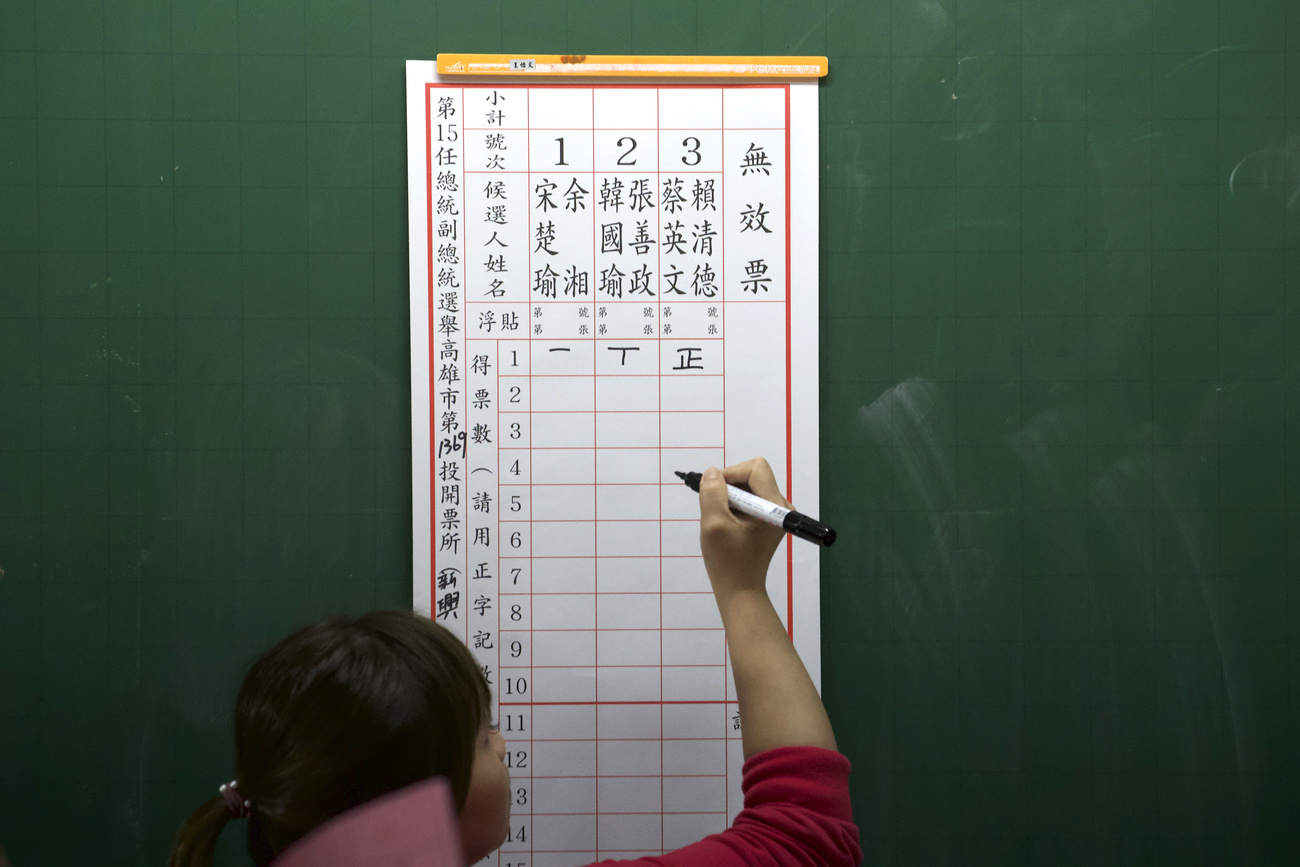
Switzerland: Trust in precision scales
While central election authorities are responsible for the entire voting process in Malta and Taiwan, in Switzerland, as in the US, these duties are mainly carried out by local authorities. Nonetheless, the information service of the Federal Chancellery, which coordinates elections, was able to announce by app that “all votes have been counted” on the evening of the most recent day of votes on Sunday, November 29.
An important reason for this is that since 2003, precision scales have been permitted across the whole countryExternal link. In other words – in Switzerland many votes are not even counted; they are weighed. “These machines are much more precise than human vote counters,” says Roger Andermatt, the district clerk of Arth. As the head of voting in this small municipality in central Switzerland, he should know – the 10,000 citizens of Arth vote regularly and diligently. Since 2015, there have been more than 88 decisions in referendums and electionsExternal link.
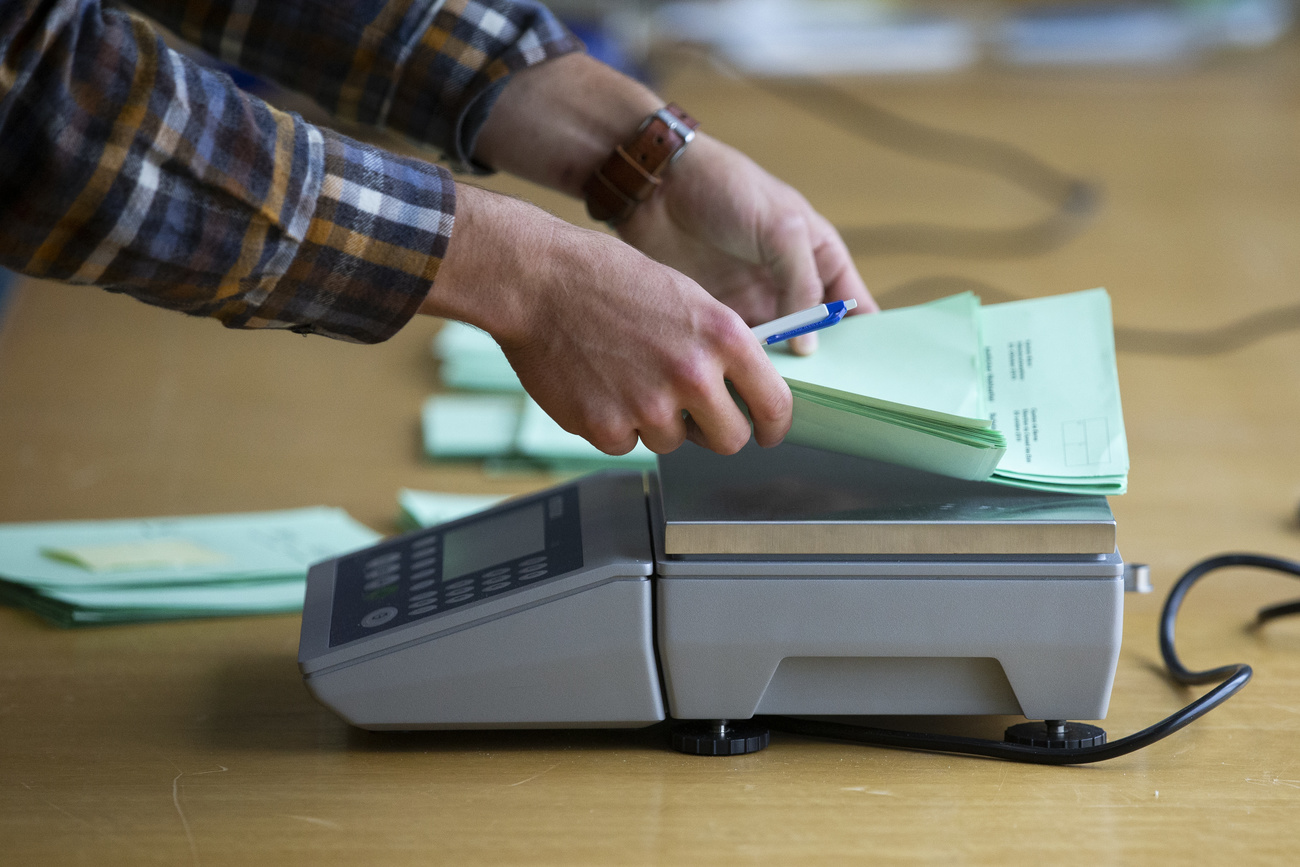
According to the Federal Chancellery, the national electoral authority, the following is required to ensure quality: “Precision scales to be used for ballot-counting must be examined and approved by the Federal Institute of Metrology in line with the Federal Law on Weights and Measures. Cantonal calibration authorities are responsible for examining and calibrating the measuring instruments.”
There is another factor that contributes to the rapid announcements of voting results in the Switzerland. “In Switzerland there are too many votes and too many subjects under debate to bear grudges,” the country’s justice minister, Karin Keller-Sutter, said on November 29 after a very close result in the hotly contested so-called responsible business initiative was announced.
Although the result hinged on just 6,000 votes, no one asked for a recount – something that has become routine in the US.
A “wild democracy”
In the US, anxiety and stress prevail whenever people are called to the ballot boxes. Billions are spent on campaigns and lawsuits. For the historian Tracy Campbell, this is not surprising: “Things such as vote-buying, the destruction of ballot boxes, fake polling stations, smuggling in illegal voters and the disenfranchisement and suppression of voters are part of our history,” says Campbell, who teaches at the University of Kentucky in Lexington.
In addition, the US election system consists of more than 10,000 largely independent legal units. This web-like distribution of power makes the kind of organised election fraud that Trump repeatedly insisted was happening almost impossible, but it also makes it more difficult to overcome local deficits in the election process, such as discrimination against certain sectors of the electorate.
In addition, there is the American sense of identity – a “wild and messy democracy,” as the sociologist Charles Tilly described it after the contested Florida election in 2000 (in the end, the Supreme Court gave the presidency to the Republican George W. Bush despite his losing the popular vote).
Americans, Tilly said, prefer a “fight for power using all means available” to “non-violent tyranny.”
Translated from German by Catherine Hickley

In compliance with the JTI standards
More: SWI swissinfo.ch certified by the Journalism Trust Initiative
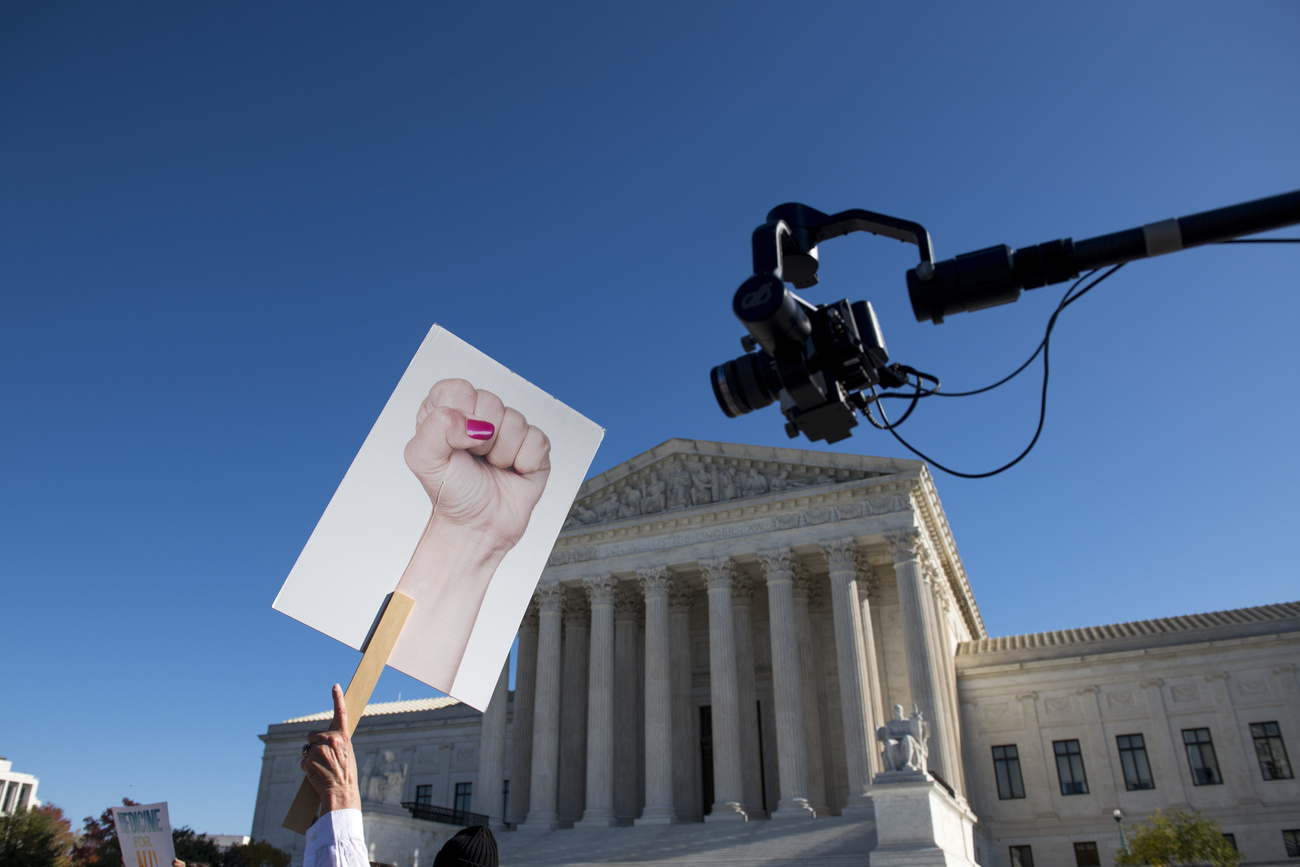
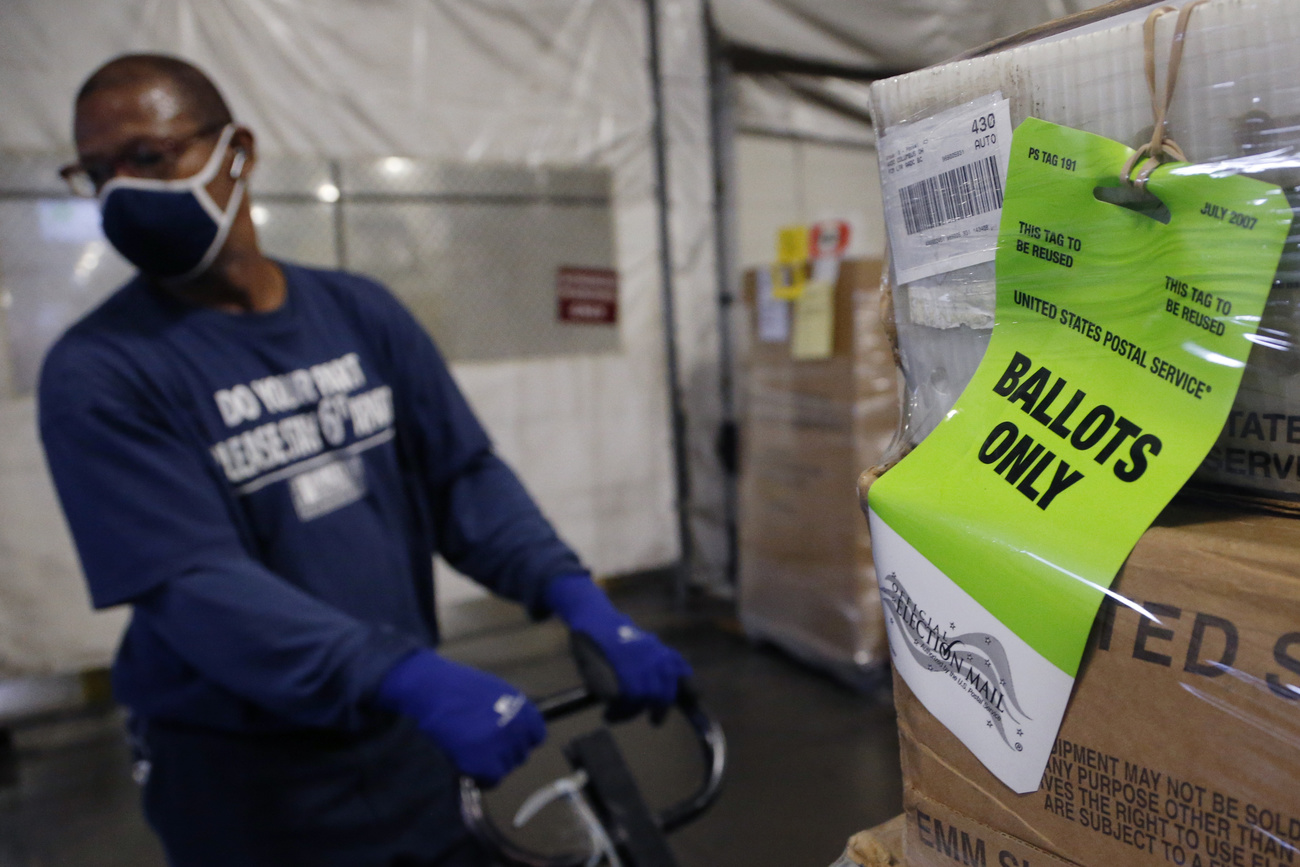
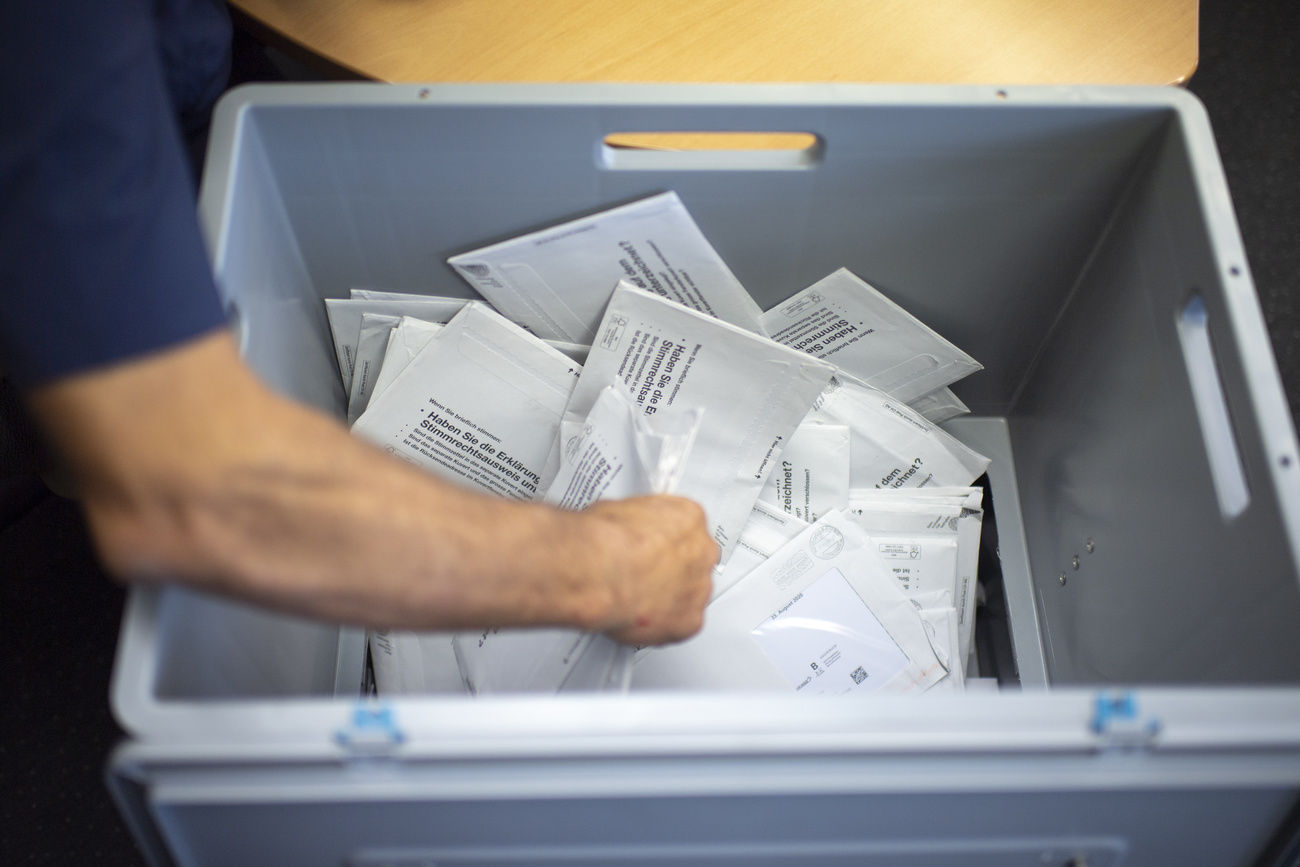
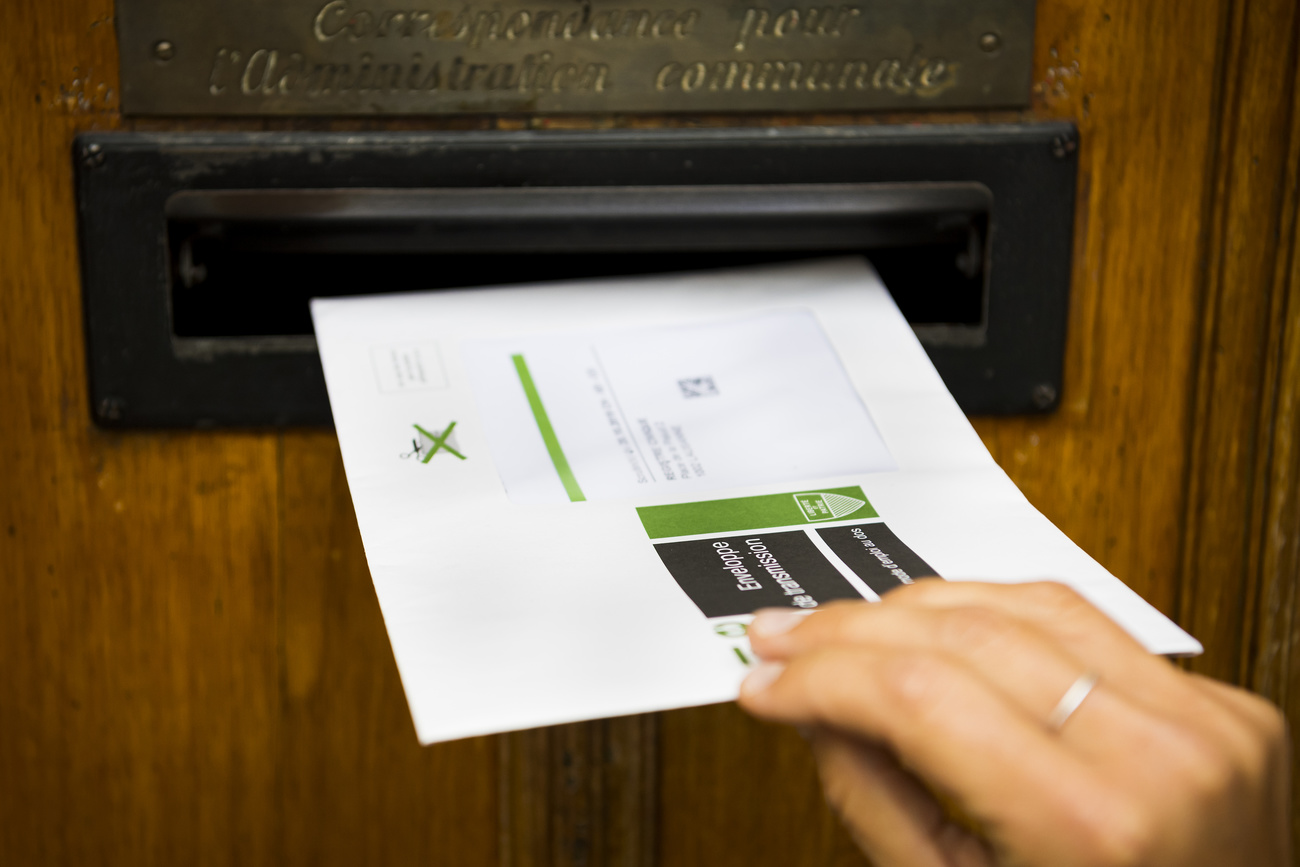
Join the conversation!